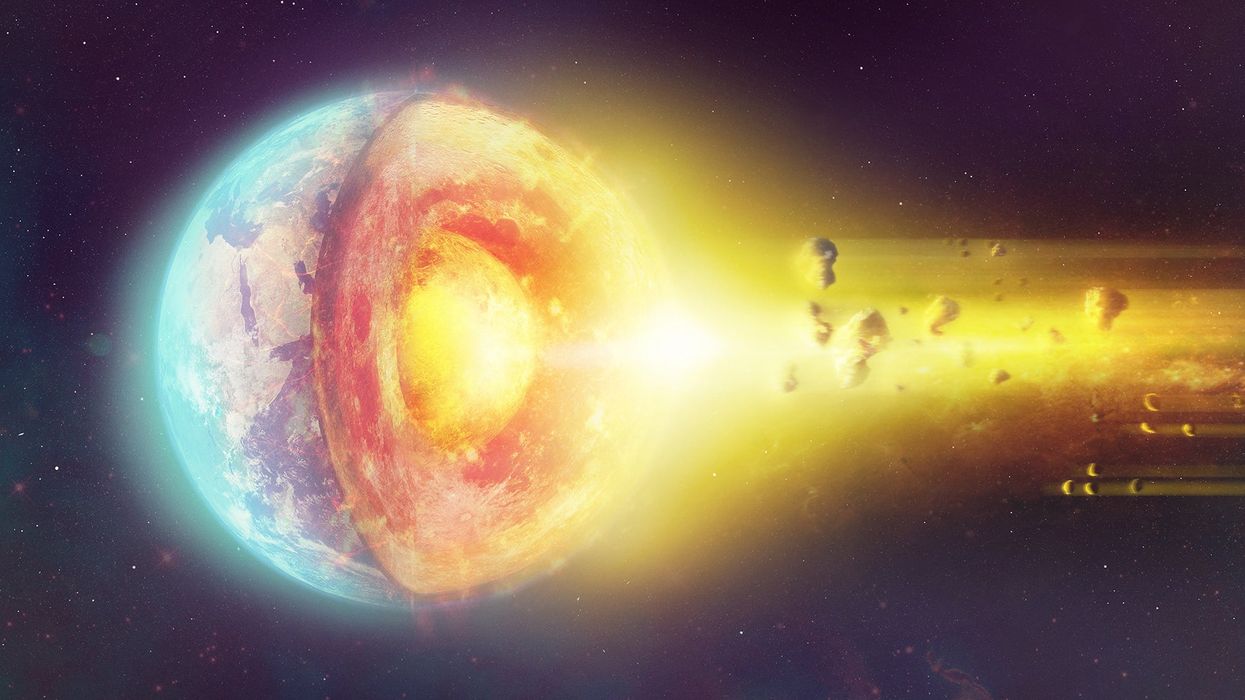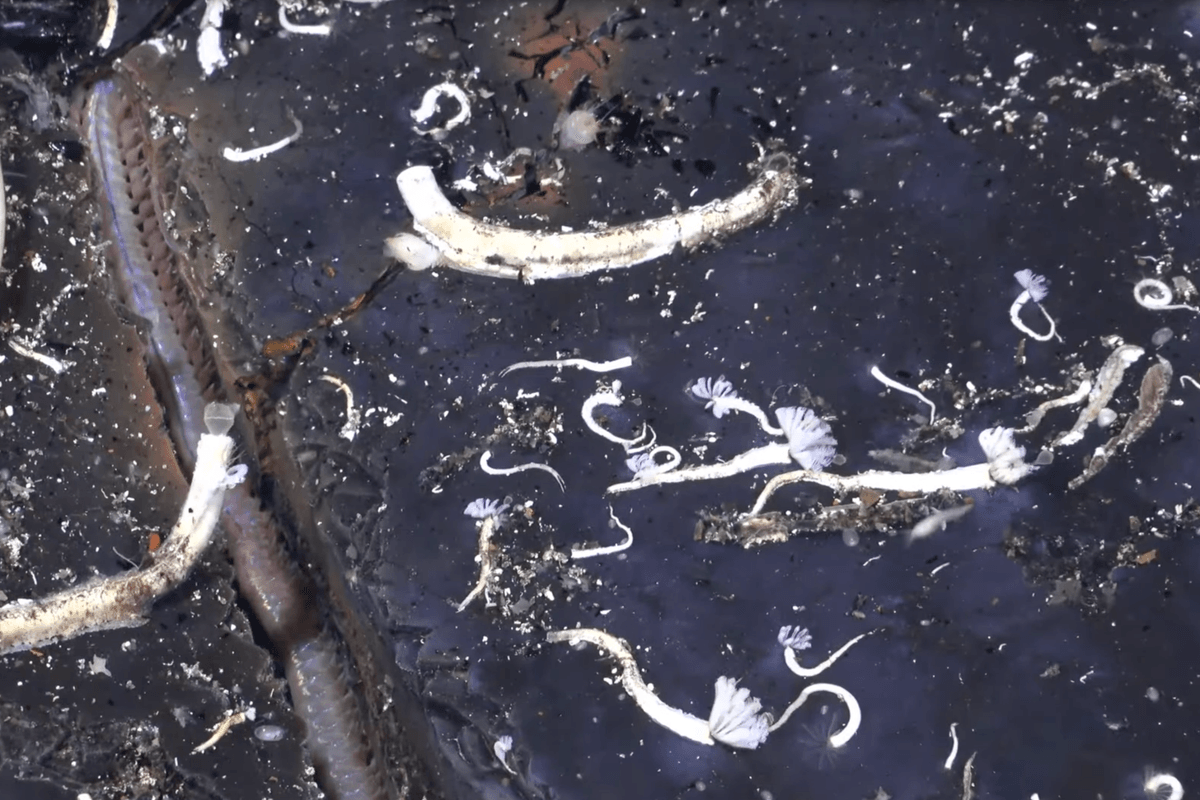News
Jack Webb
Oct 26, 2018

Picture:
iStock/Yuri_Arcurs
When you think of the centre of the Earth you probably picture something like this:
Well, let us extinguish those thoughts of a fiery hellscape with what it's actually like.
Unfortunately, we can probably speculate that there are no giant lizards, Nazis or dinosaurs fighting down there. But thanks to the first detection of a long-anticipated type of seismic wave, scientists now have been provided insight into the nature of the Earth's inner core.
The discovery has confirmed that the Earth's centre is indeed solid, however the waves' speed suggest things aren't as rigid as previously thought.
This has lead the team involved in the research to say they have found the Earth's 'soft heart.'
What we have gleaned so far has come from comparing the aftermaths of earthquakes near their source, with echoes on the other side of the planet.
Inge Lehmann determined in 1936 that seismic waves produced by earthquakes in New Zealand were coming into contact with boundaries within the Earth itself, which bounced the waves as they travelled to Denmark.
From this, Lehmann speculated that the Earth had an inner core, with a radius which was 70 percent of that of the moon.
Speaking to IFLScience, Professor Hrvoje Tkalčić of the Australian National University speculates of how rigid the core is.
The rigidity is measured by studying what's known as shear waves, which pass through solid objects.
However, since nothing is ever easy, the shear waves from the Earth's inner core are nigh on undetectable, and finding out their existence was a massive discovery for the field.
Tkalčić announced his findings in Science:
Using a global network of stations, we take every single receiver pair and every single large earthquake – that's many combinations – and we measure the similarity between the seismograms,
That's called cross-correlation, or the measure of similarity. From those similarities we construct a global correlogram – a sort of fingerprint of the Earth.

Read more: There's a 'hollow Earth' conspiracy theory and it makes flat Earthers seem smart
Top 100
The Conversation (0)
x













